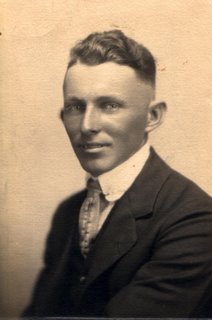The Hop Yard Hobo - Part 1 (by my late father)

I am known by many names --Whitey, Mizzou, Shorty, Slim, Mac, Red and Al: but Al or Whitey will do for me in this narrative of rambling and working in an Oregon hop yard.
I am what is known these United States as a migratory worker, an itinerant laborer, a drifter, a floater, a bubble chaser, or, in slang terms, hobo.
The first two-and-a-half months of 1933 I spent in idleness in the neighborhood of Sacramento, California. A large part of my time was spent in the city and state libraries of Sacramento. Sometimes I spent hours in the beautiful capital park, which is said to have one of the finest botanical collections in the United States.
On other days I spent the time listening to soap box orators in Plaza Park. Here one could hear opinions expounded and discussed on almost any subject from the Bible to birth-control The Young Communists' League, Industrial Workers of the World, the Red Internationals and may other such organizations were represented.
Most of their grievances were directed against the systems of relief which have been used since the depression began in 1929. I was a member of the great Army of the Unemployed, but luckily did not have to eat or sleep at the soup houses or flop houses. I went to them to be able to understand the soap box orations. Many of their grievances were justified. Nearly all of the speakers were guessing and wondering what the incoming President-elect Roosevelt would do for them. I wonder how they all feel toward him now.
I was in Sacramento when the great crash came. One large bank closed its doors but the others remained open all day and part of the night while depositors stood in line for their money. Mr. Roosevelt became president just at this time and declared a bank holiday. This act closed all banks and apparently prevented the ruin of many of them. To make matters worse, along came southern California's series of earthquakes. This catastrophe made the headlines of the newspapers and served to bring a lull over the financial excitement.
Immediately after these quakes I became too restless to stay in one place and left Sacramento to rustle for employment. I hitchhiked from that city to San Francisco and went up to the Hearst Building. A friend of mine, Mr. Al Green, had an office in this place. He had worked at a a variety of callings --marine engineering, rigging, dredging engineering, general contracting, and oilfield wildcatting. Mr. Green was glad to see me, but had no work for me.
He said, "Whitey, everything is in a bad way here. Eighty thousand people are living on charity. There is no work, but are hopeful of a change with the new administration."
After a long talk in the office we walked over to Howard and Mission Streets near the employment offices. I called them a slave market. Here the streets were crowded with idle and one could feel the misery of jobless, penniless, and hopeless men. Here one could find almost any kind of human wreckage that civilization produces. We visited the large soup lines and found them to be well organized and doing a satisfactory job of feeding the thousands in the ever- hungry lines.
(more to follow another day - Pamela)


Comments
My story is so boring in comparison.
I'm going to post his, great aunt Hattie's, and great aunt Myrtie's journals because I want their words to be out there for my kids, grandkids. Probably copy to CD - but no book is planned
The first person history is mesmerizing to me, because he was my dad.
Someone else took the time to read it, however, and to you who do.....Thank you.
Dad would have been pleased.